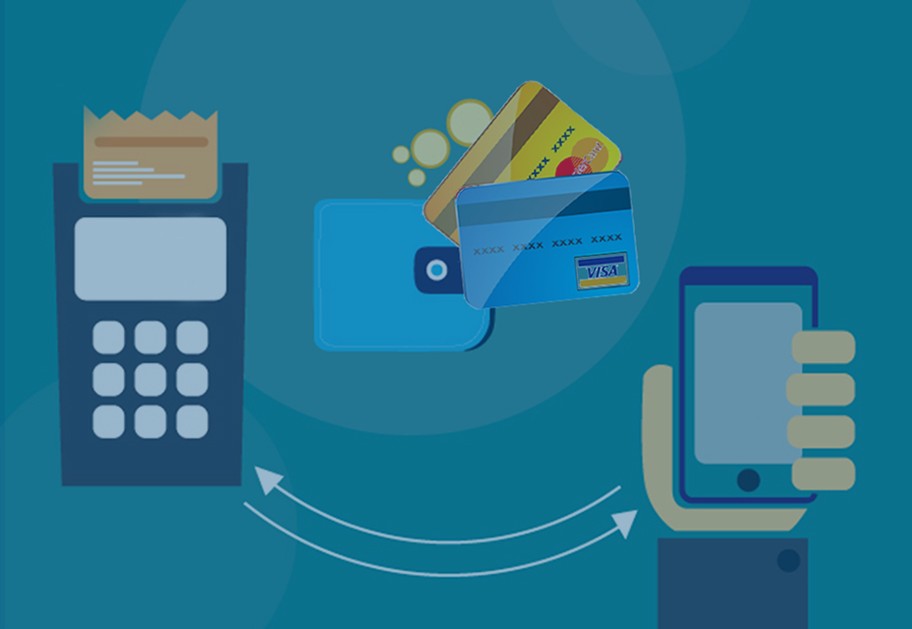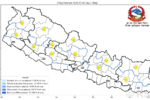KATHMANDU: Despite frequent news about cyber-crime and the possible chances of getting the account swept by the hackers, the tech-friendly people seem unmoved towards their resolution of things their wallets substituting cash with ATMs. At least the increasing users of ATMs show they are still assured of the safety and security of the electric wallet.
On October 31 last year, the banking system of Prabhu Bank went disconnected. IT officers of the bank swung into action as they failed to obtain updates mainly from the ATM system. Whilst the system was down, transactions of over one million customers were performed within a minute. Terming the transactions suspicious, bank employees informed the law enforcement agency straight away.
Police arrested five Chinese nationals on October 31 night as they were stealing money from ATMs after hacking the ATM system and seized over Rs12 million i.e. over 10,000 USD from their possession.
However, the customers are now shifted to cashless than cash transactions.
According to Nepal Rastra Bank, the governing body of banks and financial institutions in Nepal, more than 6.785 million customers have debit cards while 123,146 use credit cards. The number of ATM machines has reached 3,316 in the country.
Banks respond to a balance inquiry from their customers to their mobile phones. Users can transfer funds between an individual bank’s account and registered remittance agents. One can also make utility payments.
Likewise, 8.347 million customers of Banks and Financial Institutions (BFIs) use the service of mobile banking while 900,000 have subscriptions for internet banking. Within 3 years the number has reached to 900,000 from 500,000.
Similarly, 207.867 million people have accounts in different financial institutions in Nepal.
Furthermore, 3583 financial institutions have 8683 branches throughout the nations. The number of Class ‘A’ financial institutions’ branches has reached 3564 in Nepal.
Now, more than 60 % of Nepalis have access to Bank and Financial institutions. Some decades ago, people had to carry a huge bag of money for big transactions. Everything was done in cash.
Nobody had thought that the cash could so easily be replaced with cheque, smart cards, debit and credit cards, SMSs, internet, and lately with Cell Pay.
It was beyond an ordinary person’s imagination that mobile phones could be the tool for the money, fund transfer and utility payment.
With an increment in this technology, almost all the commercial banks, development banks, and few financial institutions are providing convenient service to their clients through such its use.
Sushila Basnet, a resident of Kirtipur Kathmandu recalls her older days when she had to wait for the office hour of the Banks and Financial Institutions (FBI) for any transaction. But now, with a few minutes, she can withdraw the money in convenient ways.
“Due to the debit cards, I don’t carry money in my wallet, whenever I need money I swap my card”, she said. “It is easy and safe in addition because people need not carry a bundle of money in the bag,” she added.
Now, considering the customers, Banks are getting tech-savvy. Cards both, debit and credit, are replacing cash in people’s wallets.
Hari Shrestha, from Kapan and Mamata Thapa of Basundhara, stated that with the help of these utilities, they are free of huddles and long queues and feel that they save time.
Similarly, Khem Raj Poudel of Sindhuli shares that card has helped him in odd hours as well. He says that he can do a transaction at night also and help in an emergency.
These are the few people who use the card and other utilities provided by BFIs. Now, nobody has to wait for the next office hour to do the transactions.
Kanchha Sherpa, a taxi driver, shared his experience that using the mobile wallet, many customers send the money directly to his mobile wallet these days. He is thankful to be relieved from the complaint about the cash to pay back.
Now, considering the customers, Banks are getting tech-savvy. Cards both, debit and credit, are replacing cash in people’s wallets.
Competition to be the pioneers
Himalayan Bank Limited was the first bank to introduce Tele-Banking (Telephone Banking) in Nepal. Internet-Banking was first introduced by Kumari Bank Limited in 2002. Laxmi Bank Limited was the first bank to introduce SMS-Banking (or Mobile Banking) in Nepal. Laxmi Bank started a mobile bank in 2004.
The channels in e-Banking available in Nepal are Automated Teller Machines (ATM), Point of Sales (PoS), Telephone Banking (Tele Banking), Internet Banking, Mobile Banking (SMS Banking).
From these utilities, customers are enabled to Cash Withdrawal, Balance Inquiry and can do financial transactions via Cards. In addition to it, Tele-banking, Account Status check, Balance Inquiry are also in the wallet with these cards now. Through SMS services customers are alerted of the transactions made in their accounts.
Likewise, Internet-Banking customers can have fund transfer within accounts (within the bank), get a balance statement online and pay bills online.
Commercial banks are providing financial services through cell phones, freeing people from the rush they have to make to meet people in the office. An integrated network of financial institutions, telecom operators, merchants and utility service providers have made financial transactions possible simply by sending text messages through a mobile set.
Many Nepali banks, in collaboration with telecom operators and utility service providers, are offering innovative and attractive services based on Mobile Banking.
Banks respond to a balance inquiry from their customers to their mobile phones. Users can transfer funds between an individual bank’s account and registered remittance agents. One can also make utility payments.
Due to technological advancement, there are different payment gateways like e-Sewa, Prabhu Pay, IME Pay, Khalti, CellPay. Due to these gateways, business activities have grown-up.
These all have become possible due to the technologies rolling out of 4G, ADSL, DSL, and other services. Most of the service providers, Banks, and other merchandisers have encouraged consumers to do their transactions online, remotely from their devices.
Various companies offer SMS based services, using which customers can pay their bills or transfer money directly to the merchants. The first payment gateway in Nepal is e-Sewa which started its business in 2009.
In banking and transaction services, new companies are enticed to provide the services to the customers with the new-technology and theme. Recently, Cell Pay has offered multiple financial institutions and mobile companies to come together to entertain Mobile Financial Services (MFS), which takes Banks and its customers beyond Branch-less Banking and empowers all the players like customers, banks and mobile service providers.
With services like that of Cell Pay, customers can send and receive money, pay bills, send/receive the money within Nepal, receive money from abroad, and make merchant payments.
These miracles of technology hint at the immense possibility of creative potential human mind possesses.









Comment